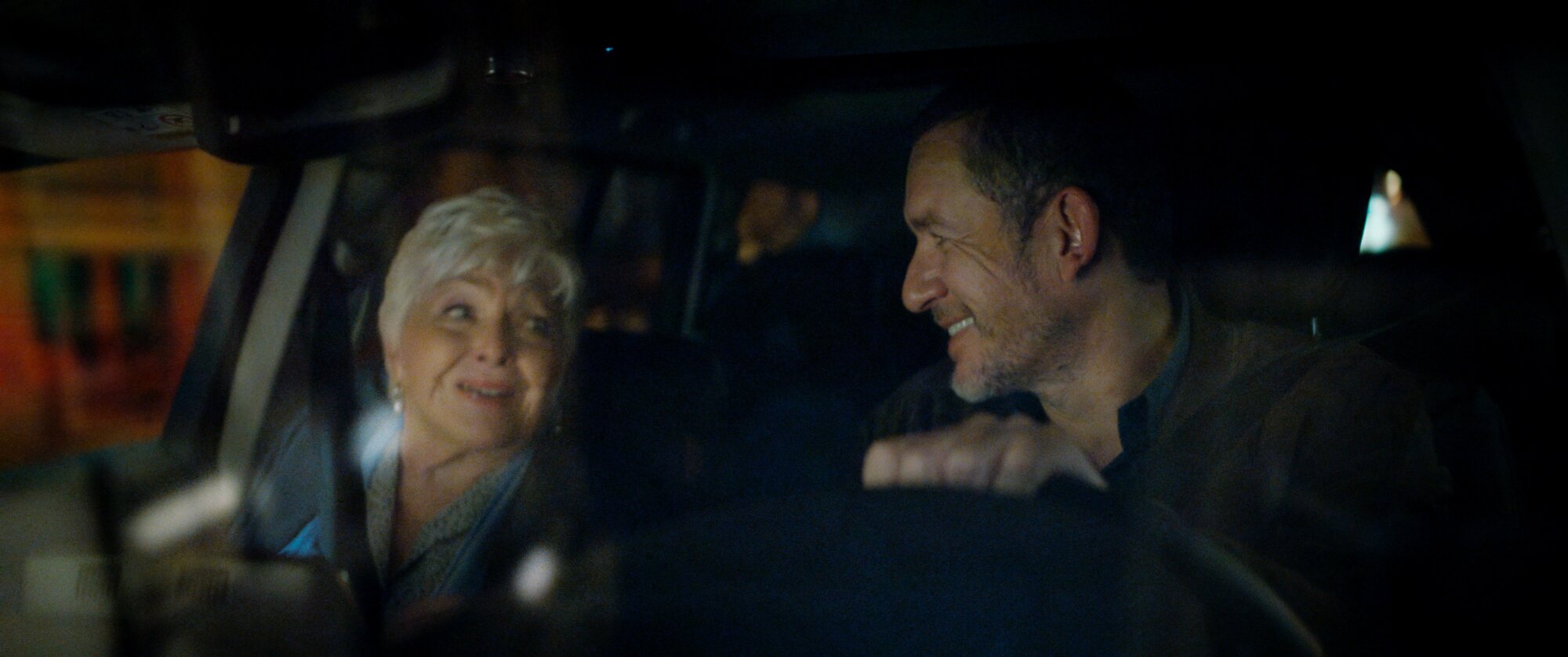Movie Info
Movie Info
- Director
- Christian Carion
- Run Time
- 1 hour and 31 minutes
- Rating
- Not Rated
VP Content Ratings
- Violence
- 1/10
- Language
- 1/10
- Sex & Nudity
- 1/10
- Star Rating
Relevant Quotes
May the Lord reward you for your deeds, and may you have a full reward from the Lord, the God of Israel, under whose wings you have come for refuge!”

Like Driving Miss Daisy, director Christian Carion’s film features an old woman being driven by a younger man. But there is no racism in this Paris-set story, and the ride is much shorter, though consuming a whole day. For me it is a delightful visual parable on the rewards of kindness.
Charles (Dany Boon) is a married taxi driver in deep debt and also in danger of losing his license because of past infractions. (We learn this from his phone calls to his worried wife.) When he receives a call from his sympathetic dispatcher about a lucrative fare (she tells him he can start his meter now) that will take him all the way and back across Paris, he has no idea of how the trip will impact his life.
The fare is the “Madeleine” of the title, a 92-year old woman who still cares about her grooming and who likes to talk. She tells him she is moving from her home into an assisted care facility. She has suffered several falls, “One bone breaks and the whole machine goes on the blink.” This may well be her last trip out into the city so there will be several stops. He tries to ignore her at first, but she will not let his moroseness deter her. “Anger ages you,” she advises. “But it’s everywhere now,” Charles says, warming up a little to her.
At a stop in Vincennes she pensively reads a plaque in memory of the men executed there by the Nazis, her husband being one of them. Soon she is remembering a happier time when the Allies had liberated Paris and she had fallen in love with an American soldier. In a flashback we see the pair dancing, the young Madeleine, charmingly played by Alice Isaaz. An out-of-wedlock son is borne from their relationship, but when the G.I. returns home, there is no further communication. She marries a lout named Ray who comes to resent the boy as an intrusion. He becomes abusive, and then he takes out his anger on the son as well. “Back in those days, you couldn’t get a divorce for domestic violence,” she explains, so she violently defended him, her act sending her to prison.
Her tales evoke the best feelings from Charles, who enjoys their many stops, the last one being at his suggestion, a dinner at a nice restaurant. He phones the home, declaring, not asking, to inform them that they will be late. When at last he does deposit her at the door and she discovers she does not have the fare in her purse, he tells her that he can come back later in the week for it. When he does return, the situation is not really surprise, but is deeply satisfying. The melting of his anxious heart, releasing his kindness, is amply rewarded. This is sentimental film as the director’s 2005 picture Joyeux Noel, inspired by the account of a 1914 Christmas truce between German, French and British soldiers in World War. What a heart-warming parable of human kindness!
This review will be in the March issue of VP along with a set of questions for reflection and/or discussion. If you have found reviews on this site helpful, please consider purchasing a subscription or individual issue in The Store.

